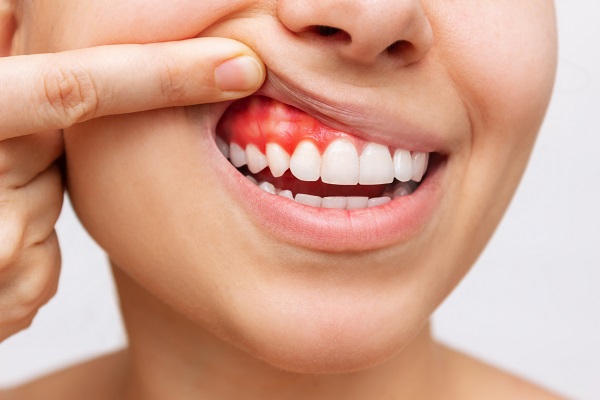How Is Gum Disease Treated?

Learning about how gum disease is treated is a great idea, as many people experience some level of dental anxiety because they do not know what to expect. Since general dentists treat all types of gum disease, patients can make a list of questions about this dental disease to ask their dentist next time they go in for a dental check-up.
What does a gum disease diagnosis mean?
When one is diagnosed with gum disease, it means that they need to make a dental appointment as soon as possible to treat the disease. If they do not, it will only continue to progress, which can lead to one being diagnosed with more severe stages of gum disease. Common signs include red gums, swollen gums, sore gums, bleeding gums and bad breath.
Treating gum disease
When it comes to treating gum disease, the type of treatment used will depend on the stage of the disease. It is essential for dental patients to be treated by a dental professional, as this is the only way to properly treat any stage of gum disease. There are both nonsurgical and surgical treatments in place, making it so there is a treatment option available for treating every stage of gum disease.
Nonsurgical: Scaling and root planing
The first part of this deep cleaning treatment option is one that requires a dental professional to remove any tartar built upon the teeth, which is important as this supports the ability for the gums and teeth to get back on track to being healthy. It also removes the buildup of bad bacteria in the mouth due to the gum infection. The second part helps make the roots of the teeth smooth again, which helps to prevent a future buildup of tartar and bacteria.
Nonsurgical: Antibiotics
Both topical and oral antibiotics can be used to help keep the number of bad bacteria in control, as bad bacteria in the mouth can lead to additional mouth problems, as well as overall health problems. Topical antibiotics are introduced to the mouth in either a rinse or a gel at the time of treatment, while oral antibiotics are given via prescription.
Surgical: Flap surgery
Flap surgery is also known as pocket reduction surgery, as this surgical treatment option is one that has a goal of making infected gum pockets located around a tooth smaller. The process requires a dental professional to first make minor incisions in the gums in order to expose the roots of the teeth, which are then thoroughly cleaned out using the scaling and root planing process. If bone damage is present, any damaged bone may be recontoured to increase one’s overall health, as bone damage is more common as gum disease progresses.
In need of a check-up appointment?
Anyone who is diagnosed with gum disease, no matter how minor, needs to be treated by a dental professional as soon as possible. When gum disease is not treated in a timely manner, it will only continue to negatively affect the gums and the teeth. Since gum disease can lead to tooth loss, it is important to treat gum disease in its early stages.
Request an appointment here: https://elizabeth.uniquefamilydentistry.com or call Unique Family Dentistry at (908) 409-0267 for an appointment in our Elizabeth office.
Check out what others are saying about our dental services on Yelp: Gum Disease in Elizabeth, NJ.
Related Posts
If your dentist has diagnosed you with gum disease, you should seek treatment right away. If you do not address this problem quickly, it can become increasingly more serious. The faster you identify this condition, the more likely you are to treat it effectively. With the right intervention at the right time, you can reverse…
Like cavities, gum disease is a common dental dysfunction that affects people of all ages. If you are suffering from gum disease, you should not put off getting treatment. Your general dentist has the knowledge and training to relieve the symptoms of this disease. In some cases, the dentist might be able to reverse its…
Wondering what the signs of oral cancer are? General dentists are specifically trained in performing oral cancer screenings and thus know exactly what to look for. Dental patients can also check for signs in between screenings.Learning how general dentists perform oral cancer screenings will help dental patients know what to expect when undergoing this important…
Preventive dentistry deals with dental procedures to prevent dental issues, and it is critical for anybody who wants to keep their natural teeth for the rest of their life. Dentists used to spend most of their time treating dental issues rather than preventing them.Due to people's overly busy schedules, it is easy to put off…
